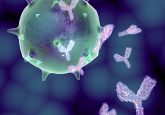Breakthrough in biomarker research could result in new cancer diagnostics
Mouse models provide evidence of a link between biomarkers of systemic disease and the oral cavity.
Recent findings at Univeristy of California, Los Angeles (CA, USA) may have led to a breakthrough in finding a non-invasive diagnostic tool capable of detecting pancreatic cancer through a saliva test.
In a study led by David Wong, Associate Dean of Research at the University of California, Los Angeles School of Dentistry, pancreatic cancer biomarkers were validated in mice. Although salivary biomarkers have been developed for cancer of the breast, ovaries, lung and pancreas, up until now, the mechanism by which the biomarkers of these cancers appears in the mouth, has been little understood.
Wong’s team were able to prove the hypothesized theory that RNA molecules are secreted into extracellular space and act as an information signalling system. The team examined mice models with pancreatic cancer whose saliva contained biomarkers. They found that inhibiting the production of exosomes at the site of the tumor resulted in the loss of these biomarkers from the saliva.
According to Wong, “This paper is significant because it provides credibility to the mechanism of systemic disease detection in saliva. We have been able to substantiate the biological connection between systemic disease and the oral cavity.” The new findings are a strong statement that saliva could be a scientifically credible detection method for systemic disease.
Source: Lau C, Kim Y, Chia D et al. Role of pancreatic cancer-derived exosomes in salivary biomarker development. J. Biol. Chem. 288(37), 26888–26897 (2013).





